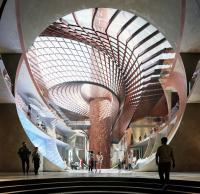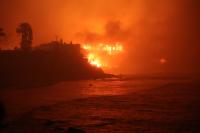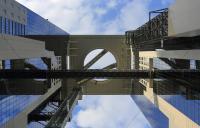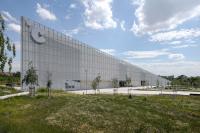Kawasaki Delta
Kanagawa, Japan
Finding Diversities of Kawasaki
Stretching across east and west, the city of Kawasaki has a diverse landscape, from the lush green Tama Hills and the Ikuta Ryokuchi Park in the west inland region to the popular residential areas with a large population in the center region, and to the east waterfront region with Japan’s leading industrial complexes with uniquely beautiful nightscape. At the same time, the people who live in Kawasaki are also diverse, and their acceptance of this diversity has shaped and strengthened the character of Kawasaki. What ties Kawasaki together is the Tama River, which runs along the northern edge of Kawasaki City. The river has provided a rich natural environment and blessings to the entire city. The concept of the landscape design of this project is “Urban to Nature: Journey along the Tama River”, with hopes to recreate a space with evolving diversity, as if we were traveling on the Tama River and encountering the various landscapes of Kawasaki.
The project site is composed of three plaza-like spaces around two buildings, the hotel building and the office/commercial building, which are connected by a linear walkway. People with various purposes access this walkway, such as those using the hotel and commercial building, those commuting to the offices, and even those passing through heading to the station from the residential areas beyond the project site. In our design, we have likened this walkway to the flow of the Tama River, the symbol of Kawasaki. The three plazas are each themed “Satoyama” (Countryside), “Urban”, and “Bay” to represent the Tama River from upstream to downstream, and each has its own unique design and planting scheme. In addition, we have designed a wide variety of spaces such as “a place with a view of the trains”, “a place to come together to go to a restaurant”, and “a place to just meetup”, incorporating various needs of the people for them to come and stay.
These locations are connected by the floor, which is designed with a motif of the shimmering surface of the Tama River. The different stone types and finishes of the uniform modules recreate a continuous flow of the stream. Located in various places within this flow, are “Tama River/Kawasaki Tag” plates, with snippets of information on landmarks and landscapes associated with Kawasaki that make up the city’s character. Visitors can follow the plates as they move along and learn about what Kawasaki has to offer. We hope that people will be able to witness and experience the diversity of Kawasaki as they come to spend some time at this location near the Kawasaki station.
● Furniture designs to suit each location
The “Bay” area is a relatively busy area, located at the decked intersection with access to the adjacent MUZA Kawasaki multipurpose complex, LAZONA Kawasaki Plaza shopping mall, and Kawasaki Station East Exit. We placed benches for people to meet up and to rest. In addition to the staggered long benches, benches with backrests surround the plaza, creating a bay-like area with both open and enclosed spaces.
Taking advantage of the large open space on the office entrance side of the “Urban” area, we placed a large stage-like deck for concerts and other events that require a stage. The staggered and irregularly overlapping platforms and steps also provide a place to hangout or as a playground for people passing by on their way to work or school, as well as giving a unique impression to the plaza. Alongside the walkway by the office entrance, we placed counter tables for office workers to have lunch or a break, sets of low tables for face-to-face conversation, and single-seat benches along the plant strip, where people can sit according to their mood. There are two types of seating at the counter tables, one with stools and one without for standing use. The standing seats are designed not to obstruct the view from the office entrance to the railroad tracks. The floor of the track front area is lowered and separated from the busy walkway with a plant strip. There are benches for people to sit and view the trains closer to the tracks.
In the “Satoyama” area, benches with backrests are placed along the outdoor walkway facing the food and beverage tenants on the same floor of the office building. These may be used while waiting to enter a restaurant or just for relaxing in the sunshine after lunch.
- Office Buildings
- Hotels + Hostels + Guest Houses
- Restaurants, Bars, Clubs
- Stations
- Plazas
- Commercial Buildings
- Furniture / Product
- Landscape Architects
- STGK Inc. | studio gen kumagai
- Year
- 2021
- Client
- East Japan Railway Company
- Architecture design
- JR East Design Corporation
- Planting plan
- SOLSO Architectural Plant & Farm























